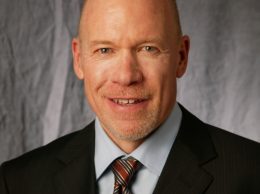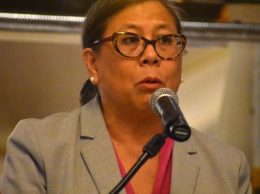Dubroff: Small business owners not as optimistic as they should be
Despite the growing hype around Small Business Saturday, the promotion developed by American Express that’s gotten some traction in the past few years, the nation’s small business owners aren’t really that happy a bunch.
Writing in a Nov. 13 report, Scott Anderson, the chief economist for Bank of the West, notes that one recent indicator suggests that a key barometer of small business optimism is running at a rate that’s far below what would be expected for this point in the economic recovery.
While there’s some cause for optimism, Anderson says the sputtering of economic growth earlier this year is weighing heavily on smaller firms.
Citing the long series of surveys by the National Federation of Independent Businesses, he says the group’s optimism index fell below 100 after briefly touching the century mark this year.
At the current index rate of 96.1, it is lower than at any non-recession point since the stagflation era of the Ford and Carter administrations.
More than six years into the recovery, the NFIB survey is delivering results that are roughly 10 points below the plus-100 confidence levels that prevailed in non-recession years from the mid-1980s through to the onset of the recession in 2007.
Among the factors holding back small businesses:
• Memories of recession are all too fresh. Small companies are heavily dependent on consumers and the collapse in housing that lasted until 2012 weighs heavily on thousands of businesses. Housing sales and homebuilding are keys to recovery for main street shops and small contractors but lack of demand is often cited by small businesses as a problem.
• Regulation in the form of business licensing, employment rules and, of course, Obamacare, are often cited as reasons for lack of confidence. Recent moves by Los Angeles to raise the minimum wage and a possible big increase in U.S. Department of Labor rules governing the number of professional workers who will become eligible for overtime pay are likely to keep business owners up at night into the future.
• Rapidly changing patterns of demand — think about how taxicabs, bed and breakfast establishments and clothing stores are being disrupted by ride-sharing, homesharing and on-line shopping. My own view is that industry consolidation happens much more rapidly online than with bricks and mortar, leaving very small opportunities for small and middle-sized retailers. In publishing, for example, three companies — Google, Facebook and Amazon — dominate online advertising. Even Yahoo barely registers when it comes to market share.
The role of small businesses, which make up nearly all of the private enterprises in our region, was brought home to me at a recent panel discussion I moderated for the Santa Maria Valley Chamber of Commerce.
Small business ownership has been one stepping stone to the middle class for people without a four-year college degree.
But between the housing market collapse, new regulations in the form of licensing rules, and lack of personal capital thanks to the housing collapse, small business starts have really stalled out in the Santa Maria Valley.
But there’s also cause for optimism about the future of small business and at the Nov. 18 forum it was obvious that Allan Hancock College, the chamber, banks and local government officials are starting to re-engage in the hard work of rebuilding small businesses. Among the positives:
• Funding via bank loans, SBA loans or alternative “crowdfunding” platforms is plentiful as financial institutions compete for new businesses.
• Spending plans by small businesses are improving as sales expectations are rising — albeit at a slower-than-expected pace.
• According to the NFIB and other reports, many small businesses are growing enough to plan for pay raises and new hires, “all good signs that small business conditions are better than they have been for years,” Anderson wrote.
SBA regional administrator Donna Davis also painted a positive picture in a recent email exchange.
“The rural areas are still challenged in many parts of California and the drought has had a significant adverse impact. In Santa Barbara County and along the coast, we see small businesses doing quite well actually,” Davis said.
With few economists expecting a further slowdown in the economy and many suggesting there is no recession in sight for several years down the road, it may be that small businesses will have a bit more spring in their step next year.
• Reach Editor Henry Dubroff at [email protected].












